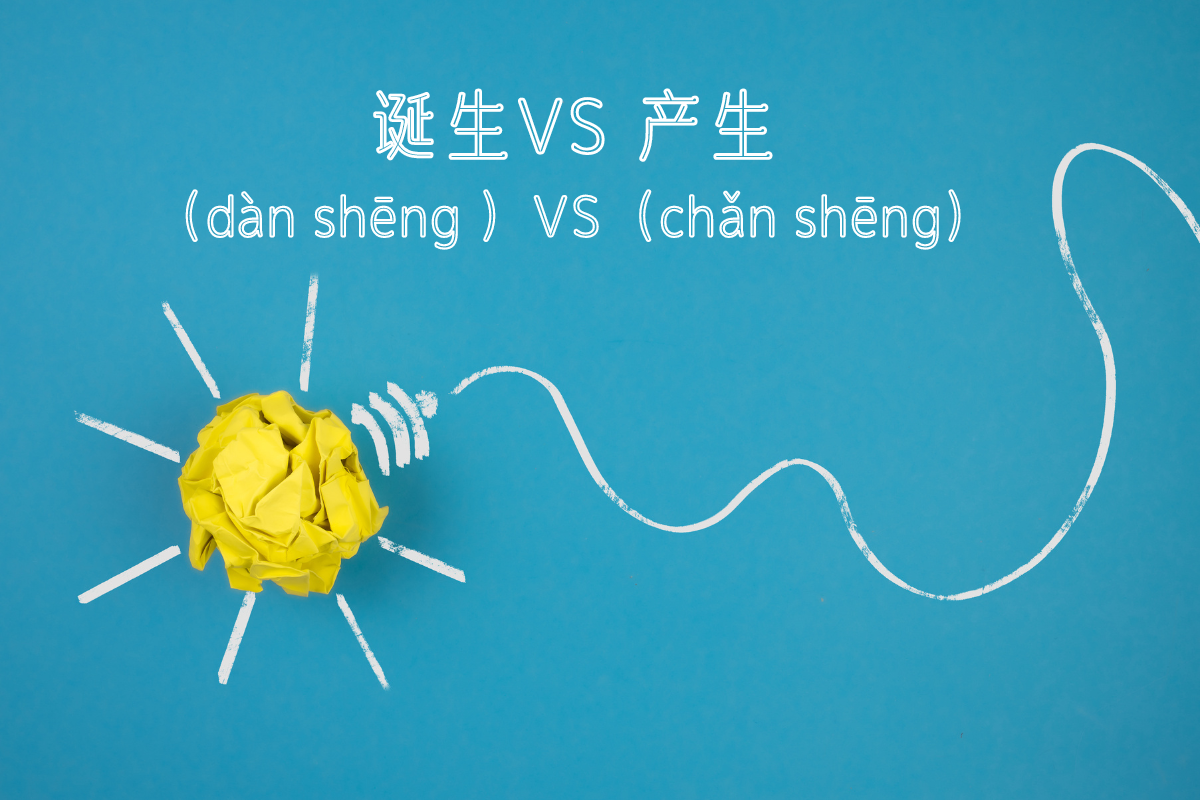HSK Words: 诞生 (dàn shēng) VS 产生 (chǎn shēng)
Do you know the difference between HSK vocabulary terms “诞生” (dàn shēng) and “产生” (chǎn shēng)? They may seem to have no difference, but actually there are some dsitinctions. What are the differences between them?

“诞生”(dàn shēng) refers to the birth or birth of a child. The term "birth" refers to the birth of a person or the emergence of a new thing, as well as a birthday; Three fingers are established.
Examples:
- The dream of sports was born.
运动梦想诞生了。
yùn dòng mèng xiǎng dàn shēng le 。
jīn tiān , mǎ kè sī dàn shēng le 。 - Unity gives birth to hope.
团结诞生希望。
tuán jié dàn shēng xī wàng 。 - After our discussion, a best laid plans was born.
经过我们的商量,一个完美计划诞生了。
jīng guò wǒ men de shāng liáng , yī gè wán měi jì huà dàn shēng le 。
“产生”(chǎn shēng)generally refers to the appearance, formation and derivation of new things from existing things.
Examples:
- Whenever there is a traffic jam, I have an idea, if only there were more advanced tools!
每当堵车时,我就产生一个念头,要是有更先进的工具该多好啊!
měi dāng dǔ chē shí , wǒ jiù chǎn shēng yī gè niàn tou, yào shì yǒu gèng xiān jìn de gōng jù gāi duō hǎo a ! - Dad became suspicious when he saw me smiling at him.
爸爸看见我对着他笑嘻嘻就产生了疑心。
bà bà kàn jiàn wǒ duì zhe tā xiào xī xī jiù chǎn shēng le yí xīn 。 - I saw many small bubbles in the eggshell.
我看见蛋壳产生了许多小泡。
wǒ kàn jiàn dàn ké chǎn shēng le xǔ duō xiǎo pào 。
Quiz:Please consider whether to use“诞生”(dàn shēng)or “产生”(chǎn shēng) in the following sentence:
- 灯泡___了,___了许多光亮。
dēng pào ___ le ,___ le xǔ duō guāng liàng 。 - 偶然间酒___了,___酿酒热潮。
ǒu rán jiān jiǔ ___ le ,___ niàng jiǔ rè cháo 。 - 他今天___,以后会对世界___深刻影响。
tā jīn tiān ___, yǐ hòu huì duì shì jiè ___ shēn kè yǐng xiǎng 。
Answers:
- 诞生(dàn shēng)产生(chǎn shēng)
- 诞生(dàn shēng)产生(chǎn shēng)
- 诞生(dàn shēng)产生(chǎn shēng)